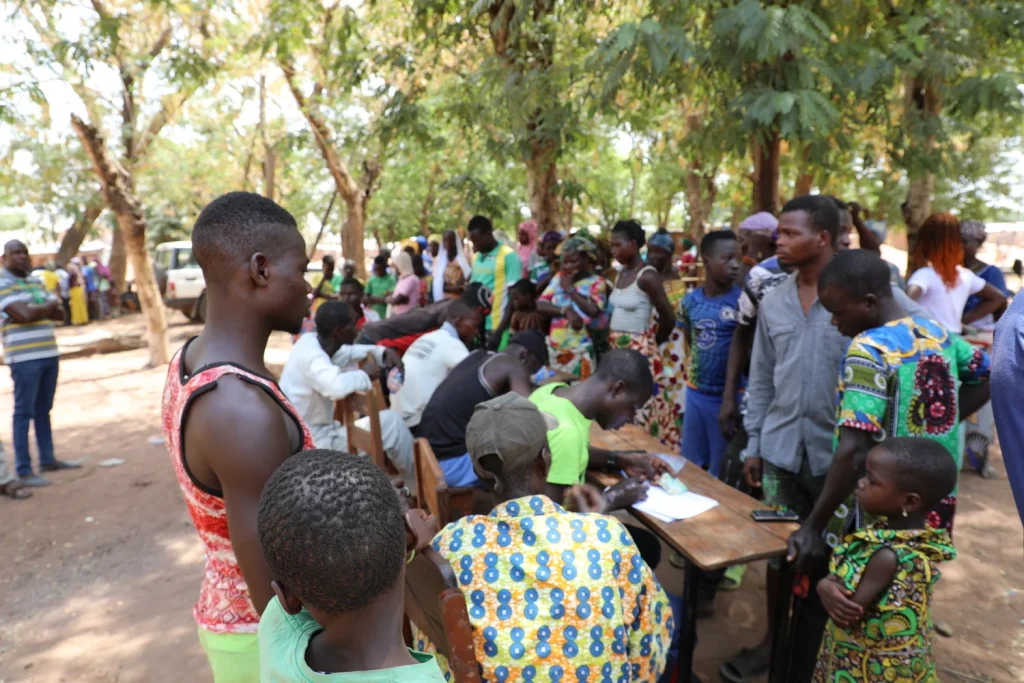In northern Ivory Coast, tens of thousands of Burkinabe fleeing extremist violence and army abuses have found refuge, either in camps or within local communities. Among them, the Niornigue camp, located outside Ouangolodougou, hosts over 6,000 of the estimated 66,000 asylum seekers who have crossed into Ivory Coast.
The camp resembles a village, featuring hundreds of brick houses with metal roofs that shelter mainly herders from the semi-nomadic Fulani community, many of whom left behind their cattle and belongings. “Since we arrived, we have felt welcome — we feel good here,” said Adama Maiga, who was breastfeeding her month-old baby born in the camp.
Each family is provided with a shelter that includes a bedroom and a small living area. The camp also boasts a daily market, four water pumps, and a playground equipped with swings for the children. However, the majority of women and children in the camp have experienced abuses at the hands of presumed jihadists, the Burkinabe army, or the Volunteers for the Defence of the Homeland, a civilian militia.

Thousands have been killed and about two million displaced by ongoing violence that erupted in 2015 when an insurgency in Mali spread into Burkina Faso. The situation worsened following two back-to-back coups in January and September 2022, which were triggered by bloody attacks from armed groups.
Since 2015, insurgent fighters linked to Al-Qaeda and the Islamic State have claimed more than 20,000 lives in Burkina Faso, with approximately 3,800 fatalities occurring this year alone, according to ACLED, an organisation that tracks global conflict.
The Ivorian government has financed nearly all the costs for building the camp, as well as another similar site near Bouna. Paulin Yewe, a defence and security advisor for the Ivorian presidency, remarked that some refugees had been staying with local families, causing overcrowding in villages.
Instead of using tents from humanitarian organisations, which were overwhelmed by the ongoing conflict in Ukraine, Ivorian authorities opted for “semi-concrete” structures, providing a quicker and more cost-effective solution. Just over a year after opening, the camp has reached full capacity.
However, the Niornigue camp houses only a small fraction of the 66,000 refugees estimated by the United Nations refugee agency (UNHCR), with many being welcomed into homes across northern Ivory Coast. Ibrahim Traore, a volunteer in Ouangolodougou, assists in registering newly arrived families and occasionally hosts them temporarily.
Asylum seekers rely on the generosity of host families, along with some assistance from the Ivorian government and international organisations like the UNHCR. Most dream of securing small plots of land to cultivate and provide for their families, along with sending their children to school — a reality for only about 100 of them.


